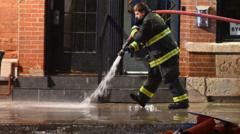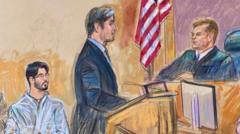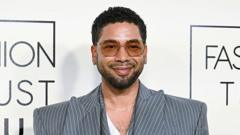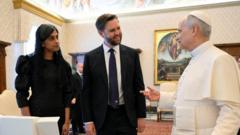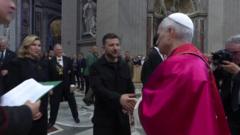Pope Leo XIV, formerly known as Robert Francis Prevost, has demonstrated a significant voting record in Illinois, aligning with both Democratic and Republican parties over the years.
Pope Leo XIV’s Voting History Revealed: A Bipartisan Approach

Pope Leo XIV’s Voting History Revealed: A Bipartisan Approach
Pope Leo XIV’s electoral participation showcases a history of voting across party lines in Illinois, indicating a nuanced political engagement.
Pope Leo XIV has emerged as a pontiff with a notable track record of political engagement, revealed through his voting history in Illinois. State records indicate that the new pope, a Chicago native, has consistently exercised his right to vote in general elections over the past two decades, participating in both Democratic and Republican primaries.
Recent records from Will County, a suburban region of Chicago, outline that Pope Leo has engaged in several elections since 2012, notably casting his vote in three Republican primaries from 2012 to 2016. His participation reflects a blend of political affiliations; for instance, during 2008 and 2010, he opted for Democratic ballots in primary elections.
Born as Robert Francis Prevost, the pope’s ties to Illinois run deep, as he was raised in Dolton, where family involvement in the church was prominent. Despite his religious commitments taking him to Peru and Rome, he has maintained connections to his roots by returning to Illinois for education and various clerical assignments.
Election records spanning back to 2000 show that he has participated in at least 10 general elections, casting an absentee ballot in the November presidential election. Illinois rules allow unaffiliated voters to choose either party’s primary ballot, a practice Pope Leo has evidently embraced throughout his voting journey.
His multifaceted voting history not only illustrates a personal practice of civic engagement but also highlights the complexities of identity within the realm of contemporary religious leadership, especially amidst the political landscape of a state where Democrats tend to dominate.
In light of this, Pope Leo XIV’s actions could prompt broader dialogues on the intersection of faith and politics, particularly within the context of the Catholic Church's role in public life.
As he embarks on his papal journey, the discussion around his electoral decisions may serve as a reflection of the church’s evolving relationship with political matters in a diverse society.


